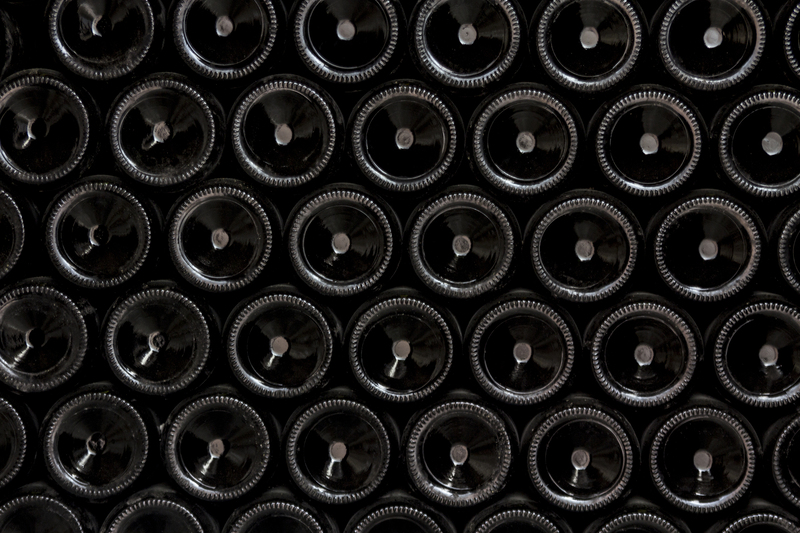Innovative Waste Prevention Tips to Maximize Your Home Efficiency
Are you looking for innovative waste prevention tips to make your home more efficient? In today's fast-paced world, being resourceful at home not only saves money but also helps protect our environment. With smart waste management and thoughtful habits, any household can optimize energy usage, reduce waste output, and maximize overall home efficiency. This comprehensive guide shares the latest strategies and actionable advice to transform your living space into a model of sustainability.
Why Prioritize Waste Prevention for Home Efficiency?
Waste prevention goes far beyond recycling; it's about minimizing what you produce in the first place and being intentional with your resources. The benefits include:
- Cost savings on utility bills and groceries
- Reduced environmental impact from decreased landfill waste
- Lower resource consumption and energy use
- Improved home organization and cleanliness

1. Implement Smart Kitchen Practices
Embrace Meal Planning and Smart Shopping
The kitchen is a hotspot for waste, especially food waste. By planning meals ahead of time and creating detailed shopping lists, you can drastically decrease excess purchasing that leads to spoilage. Try these kitchen waste prevention ideas:
- Inventory your pantry before grocery trips to avoid duplicate purchases.
- Choose products with minimal or recyclable packaging when possible.
- Store leftovers properly in clear, labeled containers to keep track of what needs to be eaten first.
- Implement a "first-in, first-out" system for perishables in your refrigerator.
Compost to Close the Food Waste Loop
If you find food scraps unavoidable, set up a home composting system. Composting is one of the best innovative waste prevention steps you can take, as it converts kitchen scraps into valuable fertilizer for your garden.
- Compost bins are available in a variety of sizes, perfect for apartments or houses.
- Include fruit and vegetable peels, coffee grounds, tea bags, and eggshells.
- Avoid meat, dairy and oily foods to keep your compost healthy and odor-free.
2. Upgrade Your Home Appliances and Systems
Invest in High-Efficiency Appliances
Modern appliances are designed to consume less energy and water while performing at the highest levels. Upgrading to Energy Star-rated appliances or those with smart technology features can lead to significant waste prevention, including:
- Reduced water and electricity consumption from dishwashers, washing machines, and refrigerators.
- Use of app-connected smart thermostats to optimize heating and cooling only when needed.
- Longer lifespan and fewer replacements, cutting down on e-waste.
Seal Leaks & Insulate for Maximum Efficiency
Energy leaks are invisible forms of waste. Regularly inspect your home for drafty windows, doors, and gaps in insulation. By sealing these spaces and adding or upgrading insulation, you'll:
- Reduce the strain on HVAC systems
- Decrease overall energy consumption
- Save money year-round on heating and cooling bills
3. Innovative Water Conservation Strategies
Install Smart Water Fixtures
Water waste is a common issue in many homes, but it's easily preventable with smart upgrades:
- Equip sinks, showers, and toilets with low-flow fixtures
- Consider a dual-flush toilet system for variable water usage
- Install smart irrigation controllers to water gardens only as needed
Harvest and Reuse Rainwater
One of the most creative ways to prevent waste at home is rainwater harvesting. Use barrels or tanks to collect rainwater for outdoor uses:
- Water your garden or lawn with stored rainwater
- Wash vehicles or clean outdoor areas without relying on tap water
- Reduce stormwater runoff that can lead to soil erosion
4. Reduce, Reuse, and Repurpose: Creative Home Solutions
Adopt a Minimalist Mindset
The less you bring into your home, the less you need to throw away. Adopt a minimalist approach to possessions:
- Buy only what you need and truly love
- Declutter regularly to keep only functional and meaningful items
- Choose quality over quantity to maximize product lifespan
Creative Repurposing and Upcycling
Before throwing household items away, ask yourself if they can be repurposed or upcycled into something new:
- Turn glass jars into storage containers or vases
- Use old clothing as cleaning rags or quilt material
- DIY furniture and decor from pallets, crates, or reclaimed wood
5. Adopt Digital Tools to Prevent Waste
Go Paperless Where Possible
Digital tools can dramatically reduce paper waste and streamline your home management:
- Switch to e-bills and digital receipts instead of paper
- Use apps for note-taking, scheduling, and grocery lists
- Store receipts, warranties, and important documents electronically
Smart Home Monitoring
Deploy smart home sensors and systems to track your energy and water usage. Many modern devices can alert you to leaks, unnecessary power draw, or even food expiration dates. This data empowers you to make adjustments, preventing waste before it even happens.
6. Eco-Friendly Habits for Lasting Waste Reduction
Choose Reusables Over Disposables
A key aspect of waste prevention is swapping single-use items for durable, reusable options:
- Reusable shopping bags, water bottles, and coffee cups
- Cloth napkins and towels instead of paper disposables
- Refillable cleaning and personal care products
Educate and Involve Your Family
For these innovative waste prevention tips to succeed, involve everyone in your household. Teach children the importance of waste reduction, establish shared goals, and celebrate progress together. A collaborative effort will maximize your home's efficiency and set a positive example for your community.

Frequently Asked Questions (FAQ)
What are some easy first steps for waste prevention at home?
Start by auditing your home waste to identify key areas of improvement. Switch to reusable bags and containers, meal prep to avoid food waste, and recycle wherever possible.
How can technology help in reducing home waste?
Smart appliances, digital reminders for expiry dates, and usage-tracking systems all help monitor and reduce unnecessary waste. Apps and home automation can optimize energy and resource usage effortlessly.
Is composting possible in small homes or apartments?
Absolutely! Countertop or worm composters are ideal for small spaces. They're odor-free and easy to maintain, turning your food scraps into garden gold.
Conclusion: Achieve Maximum Home Efficiency with Innovative Waste Prevention
Making your home an efficient, low-waste space doesn't require sacrifice--it's about adopting smarter, more mindful habits and leveraging innovative home waste prevention strategies. Whether you're upgrading appliances, rethinking your grocery trips, or embracing minimalism, each step moves you closer to a greener, more resourceful way of living. Try these tips today for a cleaner home, a smaller footprint, and big long-term savings.
Ready to start your journey? Implement these innovative waste prevention tips today to maximize your home's efficiency and inspire those around you!